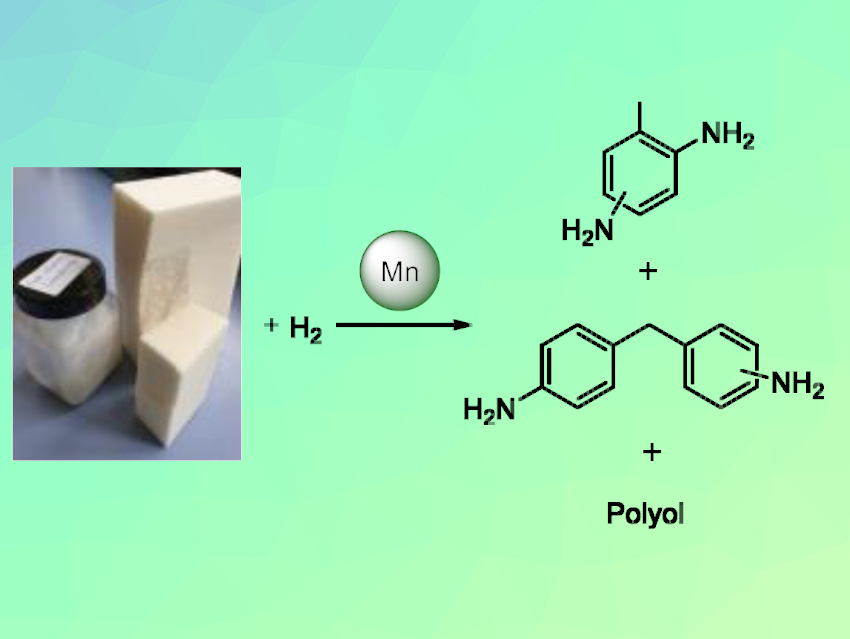Plastic pollution is a growing problem all over the world. The durability and stability of plastics make them popular materials but also create significant problems for the environment. Almost 8 % of the produced plastics are polyurethanes (PUs). The recycling options for crosslinked PUs are very limited. The current options are to downcycle the polymers to low-value materials, burn them as fuel, or dispose of them in a landfill. Chemical recycling, e.g., hydrogenative depolymerization, offers a promising way to utilize this plastic waste.
Thomas Schaub, BASF SE, Ludwigshafen, Germany, and colleagues have developed a protocol for the hydrogenative depolymerization of PUs using manganese pincer complexes (pictured below). The team used the Mn pincer complex as the catalyst, KOtBu as a base, and toluene or THF as the solvent. The reaction was performed under 60 bar of H2 at 200 °C.
.jpg)
A range of different polyurethane samples of varying compositions were successfully depolymerized using this protocol, giving valuable polyols and amines. The work shows that base-metal catalysis can be used for the depolymerization of PUs, which could be useful for the large-scale technical use of this approach.
- Hydrogenative Depolymerization of Polyurethanes Catalyzed by Manganese Pincer Complex,
Viktoriia Zubar, Andreas Haedler, Markus Schütte, A. Stephen K. Hashmi, Thomas Schaub,
ChemSusChem 2021.
https://doi.org/10.1002/cssc.202101606



